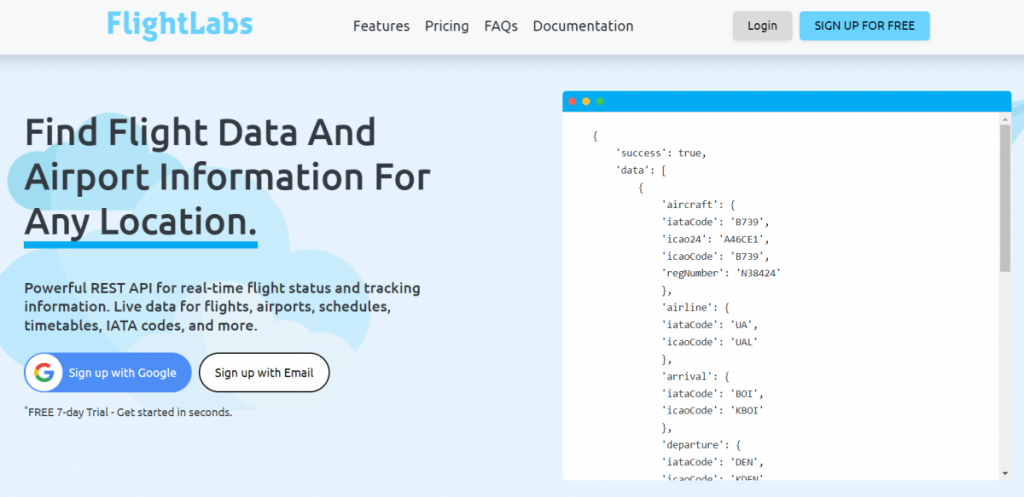In the realm of software development, efficiency and accuracy are paramount, especially in the domain of travel-related applications. At the heart of many such applications lies the IATA Codes API, a powerful tool that streamlines access to vital airport information. Let’s explore the intricacies of them and the compelling reasons why developers should consider integrating a solution like FlightLabs into their projects.
Introduction to IATA Codes APIs
An IATA Codes API, in essence, is a software interface that provides developers with programmable access to IATA airport codes and associated data. These codes, consisting of three letters, uniquely identify airports and airlines worldwide. The significance of these codes in the travel industry cannot be overstated, as they serve as the backbone for efficient communication and operation within the global aviation network.
For developers, integrating an IATA Codes API into their projects offers a plethora of benefits. It grants them streamlined access to a vast repository of airport information, ranging from locations and terminal details to flight schedules and airline specifics. This accessibility significantly expedites the development process. Therefore, allowing developers to focus on crafting compelling user experiences rather than grappling with data management complexities.

Reasons for Using An IATA Codes API
The adoption of an IATA Codes API brings forth several compelling reasons that underscore its indispensability in development projects. Firstly, it offers streamlined access to comprehensive airport information, empowering developers to create feature-rich applications with minimal effort. By leveraging the API’s capabilities, developers can seamlessly integrate airport data into their projects, enhancing the overall user experience.
Another key advantage of utilizing an IATA Codes API is the heightened reliability and accuracy it offers in flight data retrieval. By tapping into a centralized database of IATA codes and related information, developers can ensure that the information presented to users is always current and precise. This reliability instills trust in the application and fosters user satisfaction, essential elements for the success of any travel-related project.
FlightLabs: A Leading IATA Codes API Solution

Among the myriad of options available, FlightLabs emerges as a premier solution for developers seeking to integrate IATA Codes API into their projects. With its robust features and user-friendly interface, FlightLabs caters to the needs of both novice and experienced developers alike.
FlightLabs boasts a comprehensive set of features designed to simplify the integration process and maximize developer productivity. From intuitive API documentation to flexible customization options, FlightLabs provides developers with the tools they need to build innovative and immersive travel applications.
Furthermore, FlightLabs prides itself on its commitment to community support and resources. Whether developers require assistance with API integration or seek to collaborate with peers on complex projects. FlightLabs offers a vibrant community where knowledge sharing and collaboration thrive. This ecosystem fosters creativity and innovation, empowering developers to push the boundaries of what’s possible in travel technology.
https://youtu.be/6uS1sTVyfns
Final Thoughts
The adoption of an IATA Codes API, such as FlightLabs, heralds a new era of efficiency and innovation in travel-related development projects. By providing streamlined access to vital airport information, enhancing user experiences. Therefore, fostering community collaboration, these APIs are reshaping the future of travel technology.
As the demand for seamless and immersive travel experiences continues to grow, the role of IATA Codes APIs will only become more pronounced. By embracing these technologies and harnessing their capabilities, developers can unlock new opportunities for creativity and impact. Ushering in a future where travel is more accessible, efficient, and enjoyable for all.
Related Post: Flight Prices APIs: Which Are The Best APIs Available Online

